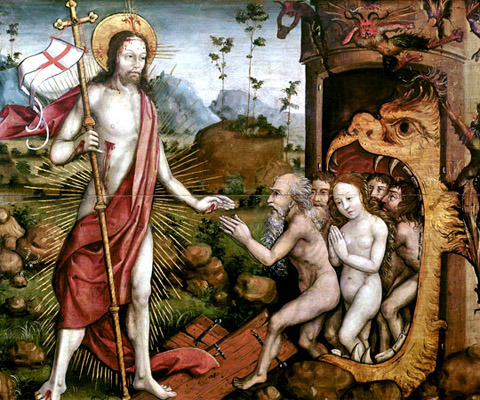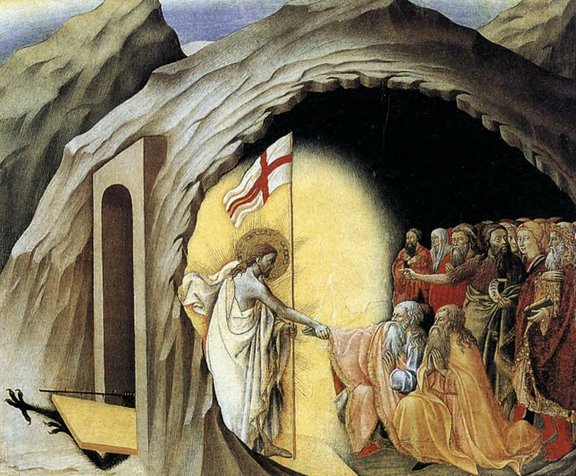 |
| Abraham before the Trinity, St John’s Psalter, (England, c. 1270-80) Cambridge, St John’s College Library, MS K.26, fol. 9 |
All of us who are baptized and in sanctifying grace have the Indwelling of the Trinity. All.
I have written about this many times in the perfection series.
The Scriptures refer to this truth, as does the Teaching Magisterium of the Church. Here are just a few of the passages from the Bible referring to the Indwelling of the Trinity. There are many, many more.
John 14:17
Douay-Rheims
17 The spirit of truth, whom the world cannot receive, because it seeth him not, nor knoweth him: but you shall know him; because he shall abide with you, and shall be in you.
1 John 3:24
Douay-Rheims
24 And he that keepeth his commandments, abideth in him, and he in him. And in this we know that he abideth in us, by the Spirit which he hath given us.
Ephesians 2:22
Douay-Rheims
22 In whom you also are built together into an habitation of God in the Spirit.
1 John 2:27
Douay-Rheims 1899 American Edition (DRA)
27 And as for you, let the unction, which you have received from him, abide in you. And you have no need that any man teach you; but as his unction teacheth you of all things, and is truth, and is no lie. And as it hath taught you, abide in him.
Now, Abraham walked and talked with God, as did the other patriarchs. The saints walk and talk with God.
We are called to do the same and if we are in sanctifying grace, God is with us. Do we pay attention?
What blocks our relationship with the Trinity is sin and the tendency to sin. In other words, selfishness stops us from being with God 24/7.
The Dark Night of the Soul cleanses us from all those blockages to realizing the fullness of the Trinity within us. And, as I have noted in the perfection series, the great saints show us what it is like to live in the Illuminative State and, finally, the Unitive State, both states which only come after purgation.
Some of us experience purgation for a long time. Abraham had a long life of purgation and we know his many sins. Sarah sinned as well, but they never gave up on their covenantal relationship with the Trinity.
The exterior visit of the Trinity with Abraham provides an analogy for us.
Abraham gave God all, and made time to be with Him. We must do the same, daily.
Without the life of the Trinity, we are dead. But, if we are alive in sanctifying grace, our bodies and our souls become a New Eden, as God walks and talks with us in "the cool of the day". We do not need to hide, as God wants us to find Him, and He wants to be found by us.
Such is our call as Catholics.
To be continued....







